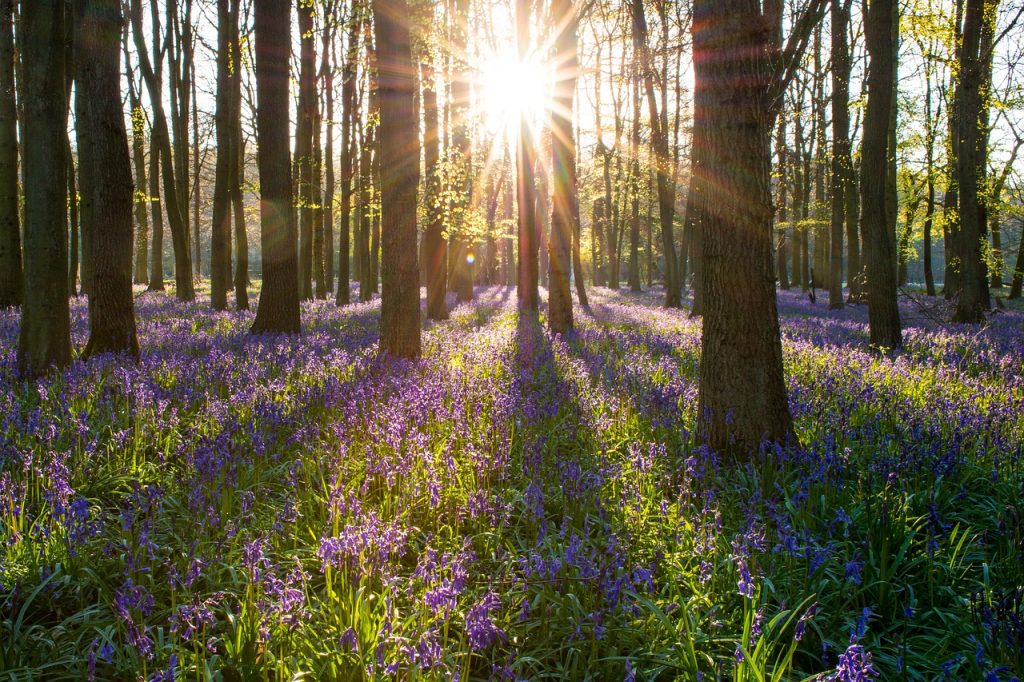Almost half the world’s bluebells are found in the UK – they’re relatively rare elsewhere.
It’s against the law to intentionally pick, uproot or destroy bluebells. The bluebell is protected under the Wildlife and Countryside Act (1981). This means digging up the plant or bulb in the countryside is prohibited and landowners are prohibited from removing bluebells from their land to sell.
The species was also listed on Schedule 8 of the Act in 1998, which makes trading in wild bluebell bulbs and seeds an offence. This legislation was designed to protect bluebell from unscrupulous bulb collectors who supply garden centres.
Bluebell colonies take a long time to establish – around five to seven years from seed to flower.
Bluebells are also associated with the goddess Brigid, the patron of poetry, fertility, and healing, who would use them to weave a carpet of flowers for the faerie folk to dance upon. Bluebells are still called “St. Brigid’s Flowers” in some parts of Ireland and are associated with the goddess’s healing powers.

